
The Enchanting Wli Nature Reserve
Nestled in the Volta Region of Ghana, the Wli Nature Reserve is a stunning testament to the country's rich natural beauty. The reserve is home to the Wli Waterfalls, the highest waterfalls in West Africa. Visitors are greeted with a mesmerizing view of cascading waters that plunge from a height of approximately 80 meters. Surrounded by lush greenery and vibrant wildlife, the Wli Waterfalls offer a serene escape from the hustle and bustle of city life. The reserve is not just about the waterfalls; it also boasts a rich biodiversity. The forest is teeming with various bird species, butterflies, and unique flora. Hiking through the reserve's well-marked trails is a delightful experience, offering numerous opportunities to spot exotic wildlife and enjoy the tranquil ambiance of the forest. The trails vary in difficulty, making them accessible to both novice and experienced hikers. Beyond its natural allure, the Wli Nature Reserve is also a cultural treasure. The nearby village of Wli is inhabited by the Ewe people, who are known for their warm hospitality and vibrant traditions. Visitors often have the chance to engage with the locals, learn about their customs, and even witness traditional dance performances. This cultural immersion adds an enriching layer to the visit, making it a holistic experience that combines nature and culture.
Local tips in Wli Nature Reserve
- Visit during the rainy season (April to October) for the most spectacular waterfall views.
- Wear sturdy hiking shoes as the trails can be slippery and challenging.
- Bring insect repellent to protect against mosquitoes and other insects.
- Hire a local guide to enhance your experience and learn more about the flora and fauna.
- Carry enough water and snacks as there are limited facilities within the reserve.
The Enchanting Wli Nature Reserve
Nestled in the Volta Region of Ghana, the Wli Nature Reserve is a stunning testament to the country's rich natural beauty. The reserve is home to the Wli Waterfalls, the highest waterfalls in West Africa. Visitors are greeted with a mesmerizing view of cascading waters that plunge from a height of approximately 80 meters. Surrounded by lush greenery and vibrant wildlife, the Wli Waterfalls offer a serene escape from the hustle and bustle of city life. The reserve is not just about the waterfalls; it also boasts a rich biodiversity. The forest is teeming with various bird species, butterflies, and unique flora. Hiking through the reserve's well-marked trails is a delightful experience, offering numerous opportunities to spot exotic wildlife and enjoy the tranquil ambiance of the forest. The trails vary in difficulty, making them accessible to both novice and experienced hikers. Beyond its natural allure, the Wli Nature Reserve is also a cultural treasure. The nearby village of Wli is inhabited by the Ewe people, who are known for their warm hospitality and vibrant traditions. Visitors often have the chance to engage with the locals, learn about their customs, and even witness traditional dance performances. This cultural immersion adds an enriching layer to the visit, making it a holistic experience that combines nature and culture.
When is the best time to go to Wli Nature Reserve?
Iconic landmarks you can’t miss
Kwame Nkrumah Memorial Park & Mausoleum
Explore the Kwame Nkrumah Memorial Park & Mausoleum, a serene tribute to Ghana's first president and a treasure trove of historical insight.

Kakum National Park
Explore the breathtaking Kakum National Park, home to stunning canopy walks, diverse wildlife, and lush tropical forests in Ghana.
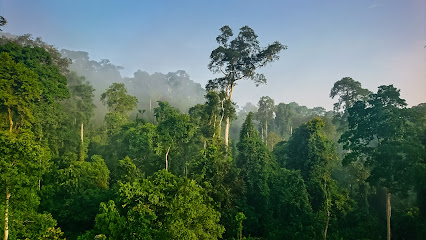
Legon Botanical Gardens Ghana..
Explore Legon Botanical Gardens, a lush retreat in Accra, Ghana, perfect for nature lovers and those seeking tranquility amidst vibrant landscapes.
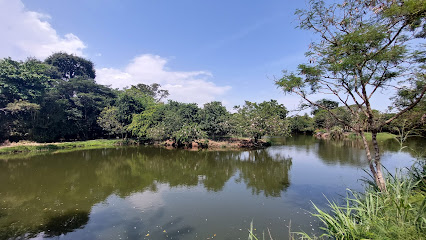
Mole National Park
Discover the breathtaking landscapes and diverse wildlife of Mole National Park, a true Ghanaian treasure for nature lovers and adventure seekers.
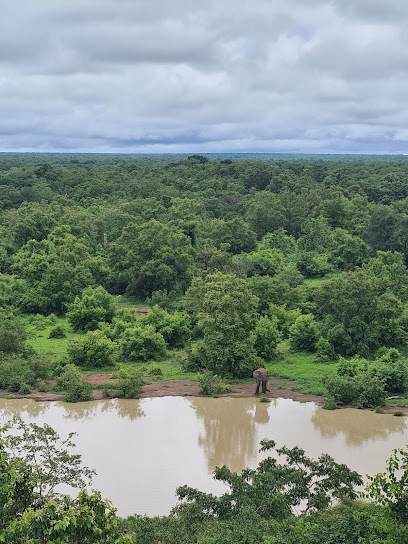
Boti Waterfalls
Explore the breathtaking beauty of Boti Waterfalls in Ghana, a serene destination perfect for nature lovers and adventure seekers alike.
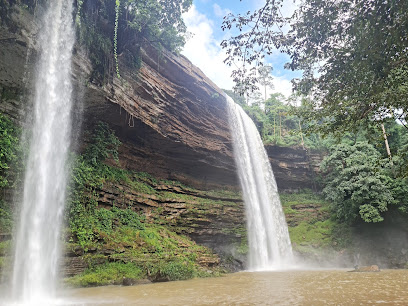
Accra Zoo
Explore Accra Zoo, a serene nature preserve in Achimota Forest, showcasing Ghana's wildlife and offering a peaceful retreat for all visitors.
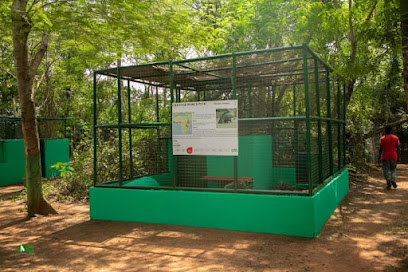
Wli Waterfalls main office
Discover the enchanting Wli Waterfalls in Ghana, a breathtaking natural wonder surrounded by lush landscapes and rich biodiversity.
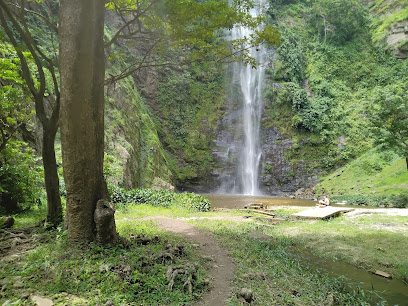
Tafi Atome Monkey Sanctuary And Cultural Village
Experience the enchanting blend of wildlife and culture at Tafi Atome Monkey Sanctuary, a must-visit destination for travelers in Ghana.
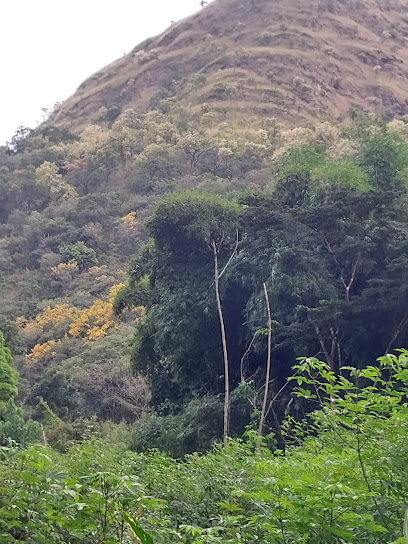
Fort Prinzenstein, Keta
Explore Fort Prinzenstein in Keta, Ghana – a historical coastal fort with breathtaking views and deep cultural significance.
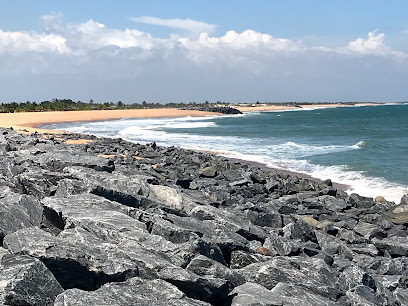
Nzulezo-Stilt Village Tour
Experience the enchanting Nzulezo Stilt Village in Ghana, a UNESCO site where culture meets the serene beauty of Amansuri Lake.
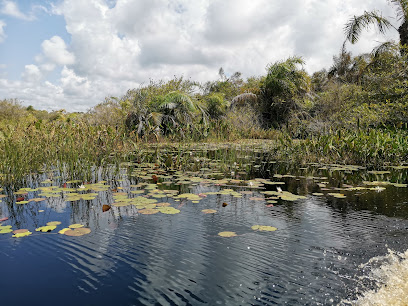
Boabeng Fiema Monkey Sanctuary
Discover the Boabeng Fiema Monkey Sanctuary, a unique Ghanaian treasure where sacred monkeys roam free in a stunning natural habitat.
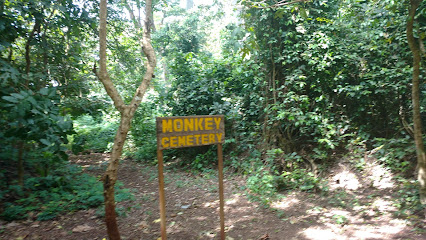
Wli Agumatsa Waterfalls
Discover the breathtaking beauty of Wli Agumatsa Waterfalls, Ghana's highest waterfall, nestled in lush landscapes perfect for adventure and relaxation.
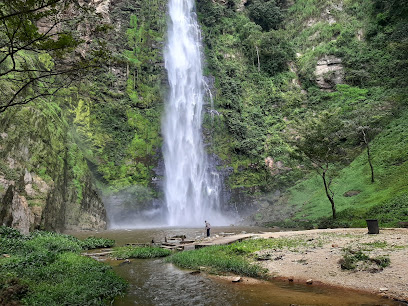
Umbrella Rock
Discover the breathtaking beauty of Umbrella Rock in Asiafo Amanfro, a natural wonder perfect for nature lovers and adventure seekers alike.
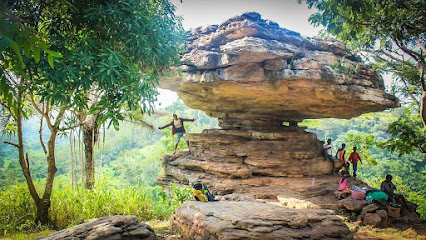
Owabi Wildlife Sanctuary
Discover the tranquility and vibrant wildlife of Owabi Wildlife Sanctuary near Kumasi, Ghana, a haven for nature lovers and birdwatchers.
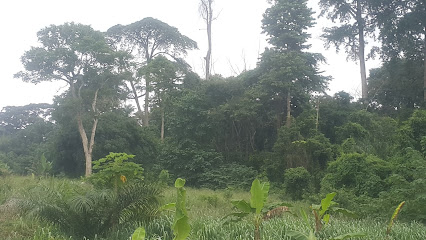
Ote Falls
Explore the tranquil Ote Falls in Amedzofe, Ghana - a hidden gem for hiking and nature lovers, perfect for outdoor adventures and breathtaking views.
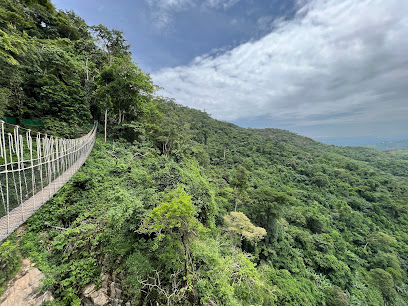
Unmissable attractions to see
Mole Motel
Discover the beauty and wildlife of Ghana at Mole Motel, your gateway to adventure and relaxation in the heart of Mole National Park.
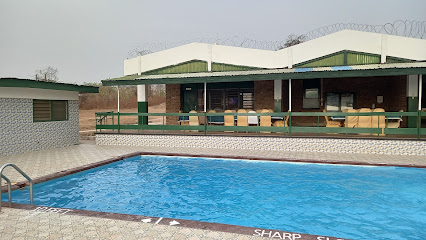
Owabi Wildlife Sanctuary
Explore Owabi Wildlife Sanctuary, a tranquil park near Kumasi, rich in biodiversity and perfect for birdwatching and nature exploration.
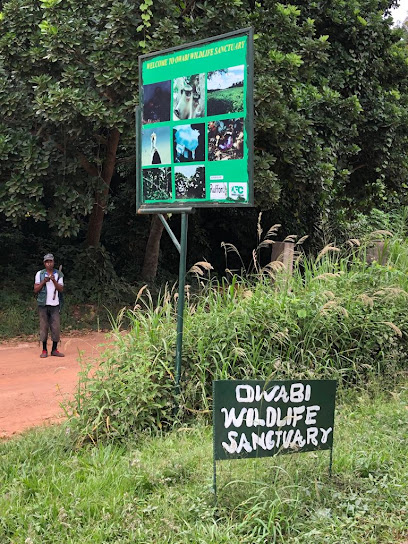
Essential places to dine
Ike’s Cafe and Grill
Discover authentic Ghanaian cuisine at Ike's Cafe and Grill in Kumasi's cultural heart.
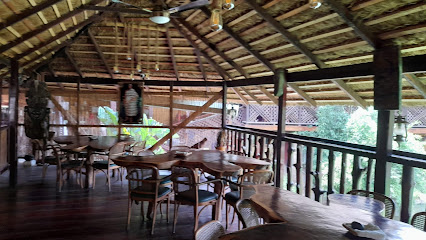
MEET AND EAT
Experience delightful dining at Meet and Eat in Tema, where local flavors meet inviting ambiance for an unforgettable meal.
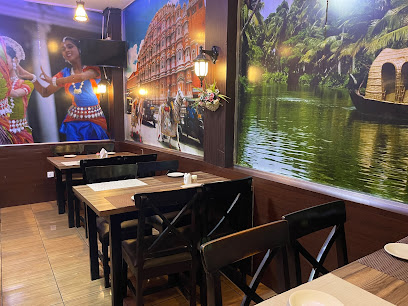
Maria's Restaurant
Experience authentic Ghanaian cuisine at Maria's Restaurant in Tema – where every dish tells a story.
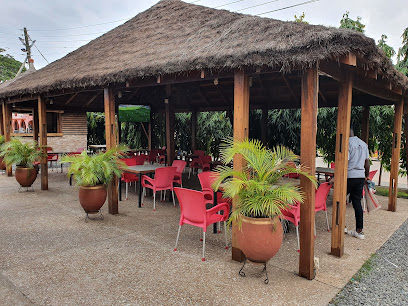
Lord's Garden Restaurant
Experience exquisite dining amidst lush greenery at Lord's Garden Restaurant in Ho - where nature meets culinary delight.
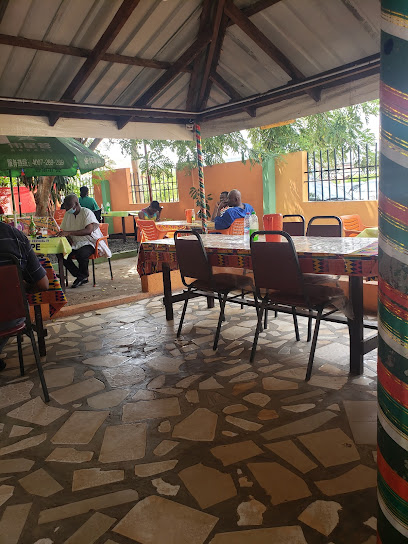
The Neem Grill
Discover authentic Ghanaian cuisine at The Neem Grill in Accra—where every meal is a celebration of flavor and culture.
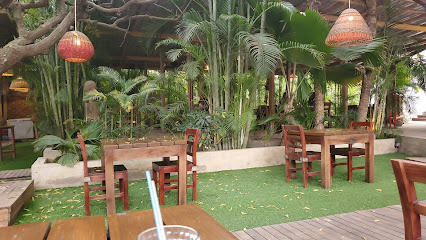
Simret Ethiopian Restaurant
Discover the rich tastes of Ethiopia at Simret Restaurant in Accra – where authentic flavors meet warm hospitality.
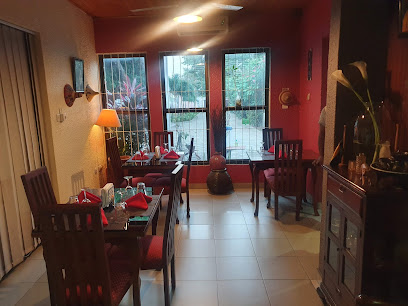
Arirang Restaurant and Guest House
Discover the essence of Korean cuisine at Arirang Restaurant and Guest House in Tema - where authentic flavors meet warm hospitality.
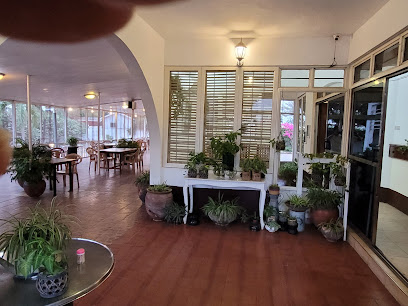
Seoul Grill Restaurant
Discover authentic Korean flavors at Seoul Grill Restaurant in Accra's Kotoka International Airport - A culinary delight for every traveler.
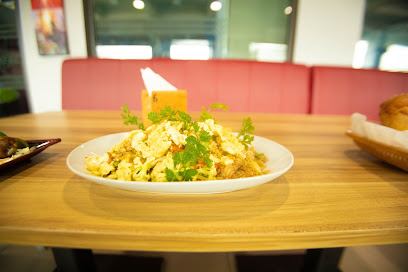
Auntie Muni Waakye Joint
Experience authentic Ghanaian waakye at Auntie Muni Waakye Joint in Navrongo – where tradition meets taste!
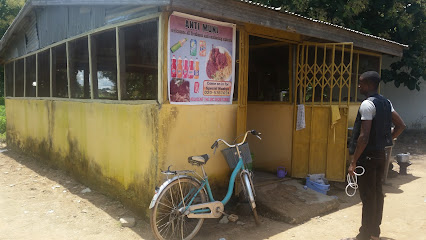
Christian Gardens Restaurant
Discover the perfect blend of local flavors and serene ambiance at Christian Gardens Restaurant in Ho.
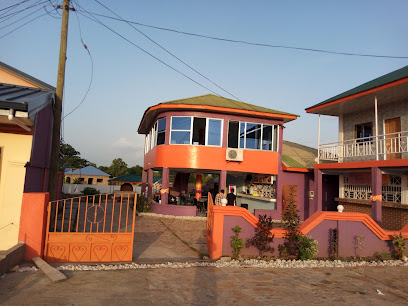
In-n-out chillies
Discover In-n-out Chillies in Ho, Ghana - A culinary gem offering delicious local and international dishes in a vibrant setting.
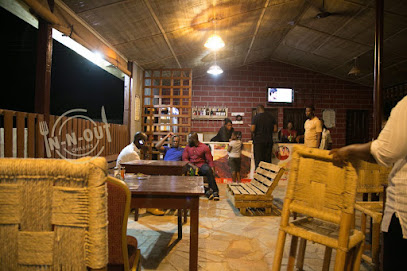
Castle Beach Resturant
Discover delicious local cuisine and breathtaking ocean views at Castle Beach Restaurant in Cape Coast.
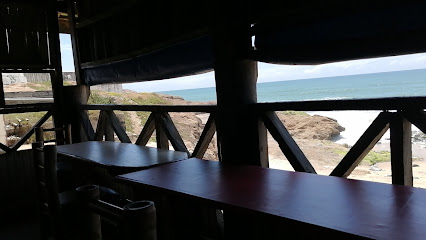
Concept Foods Restaurant
Experience culinary excellence at Concept Foods Restaurant in Akropong – where local flavors meet exceptional dining.
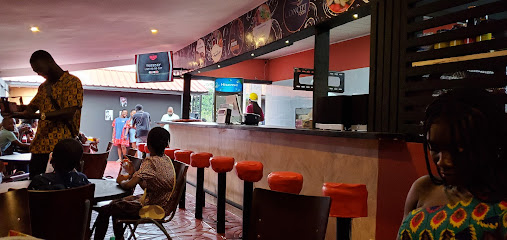
Lemon Beach Restaurant
Experience exquisite dining with stunning ocean views at Lemon Beach Restaurant in Elmina, Ghana.
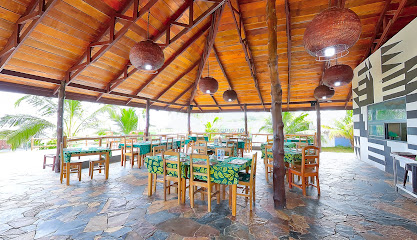
Memuna waakye
Discover authentic Ghanaian flavors at Memuna Waakye – where every dish tells a story of tradition and community.
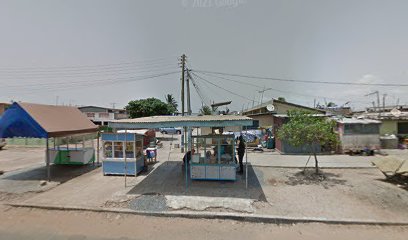
Markets, malls and hidden boutiques
Achimota Mall
Discover the ultimate shopping experience at Achimota Mall in Accra, where local culture meets a world of retail and dining delights.
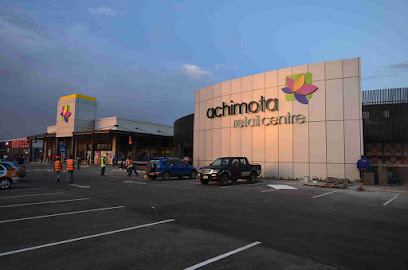
West Hills Mall
Experience shopping like never before at West Hills Mall, Accra's premier shopping destination with diverse retail and dining options.

Kumasi City Mall
Explore Kumasi City Mall - Ghana's premier shopping destination offering a unique blend of local and international brands, dining options, and entertainment.

Palace Hypermarket
Explore the bustling Palace Hypermarket in Accra, a shopping paradise offering local and international products in a vibrant atmosphere.
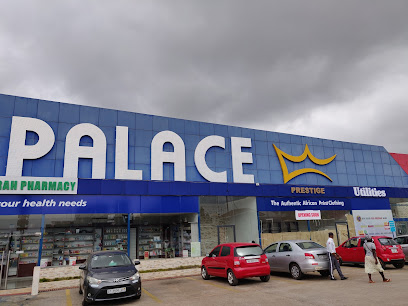
Akosnachi Enterprise Gh.
Discover exquisite jewelry at Akosnachi Enterprise in Accra's Makola Shopping Mall, where local craftsmanship meets vibrant market culture.
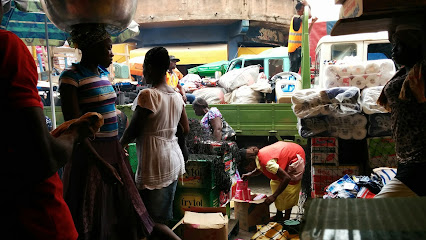
Centre for National Culture
Explore the vibrant artistry and rich cultural heritage of Ghana at the Centre for National Culture in Accra, a must-visit for every traveler.
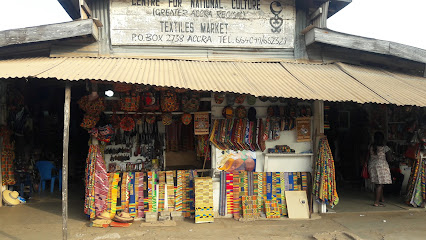
Junction mall
Explore Junction Mall in Accra for a vibrant shopping experience, diverse dining options, and family-friendly entertainment.
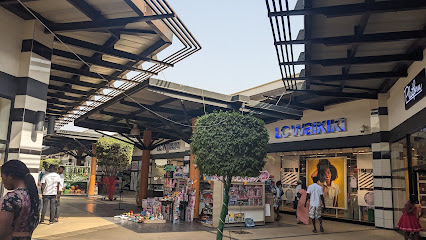
Wli Waterfalls main office
Discover the breathtaking Wli Waterfalls in Ghana, a stunning natural gem surrounded by lush landscapes and rich biodiversity.
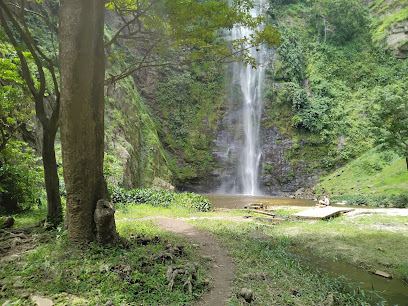
Labianca Company Limited
Explore the best frozen foods at Labianca Company Limited in Tema, Ghana, where quality meets freshness in every bite.
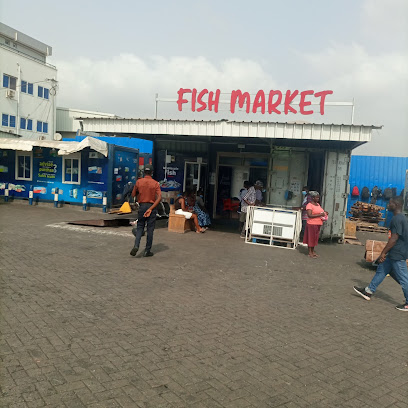
Unique Floral Centre
Explore the Unique Floral Centre in Accra for stunning flower arrangements and local gifts that embody the beauty of Ghana.
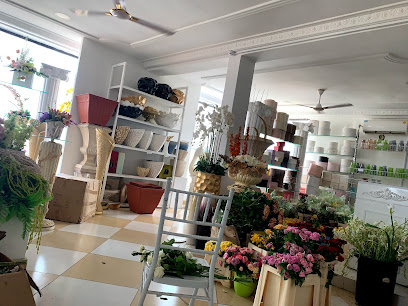
Wli Agumatsa Waterfalls
Experience the breathtaking beauty of Wli Agumatsa Waterfalls, Ghana's highest waterfall, surrounded by lush landscapes and vibrant wildlife.
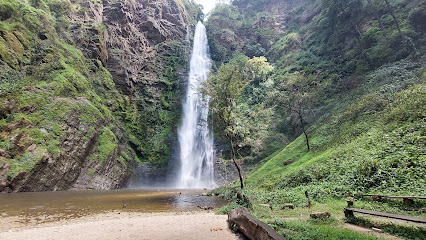
Finest Gifts
Explore Finest Gifts in Accra for unique souvenirs, handcrafted treasures, and a glimpse into the rich Ghanaian culture.
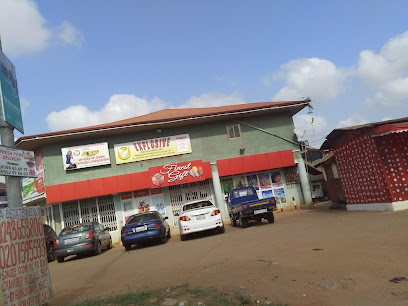
Lotus Gallery
Explore Lotus Gallery in Accra for unique Ghanaian gifts and a taste of local artistry, perfect for memorable souvenirs and cultural treasures.
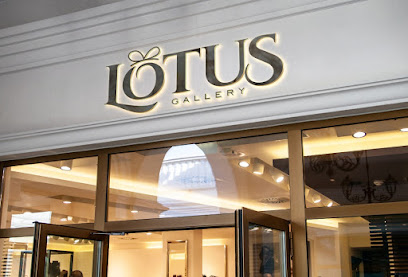
Elle Lokko
Explore the essence of Ghanaian fashion at Elle Lokko, a premier women's clothing store in Accra, blending local talent with contemporary style.
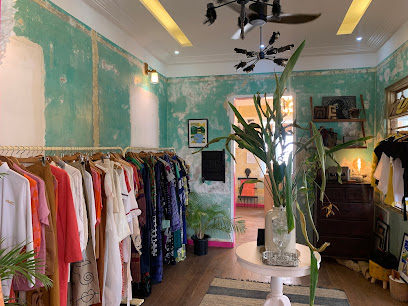
Sun Trade Beads
Explore the vibrant artistry of Ghana at Sun Trade Beads, where handcrafted treasures meet rich cultural heritage.
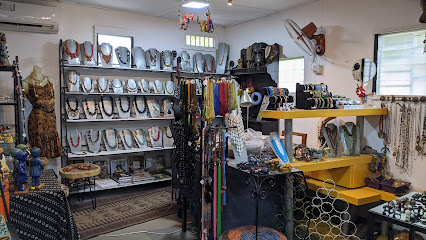
Essential bars & hidden hideouts
The Republic Bar & Grill
Experience the vibrant flavors of Ghana at The Republic Bar & Grill, where delicious grilled dishes meet a lively bar atmosphere.
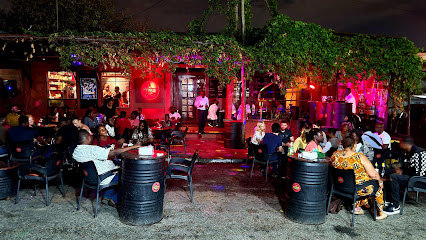
Aborigines Pub
Discover the vibrant atmosphere and delicious grilled delights at Aborigines Pub in Accra, a must-visit for food lovers and nightlife enthusiasts alike.
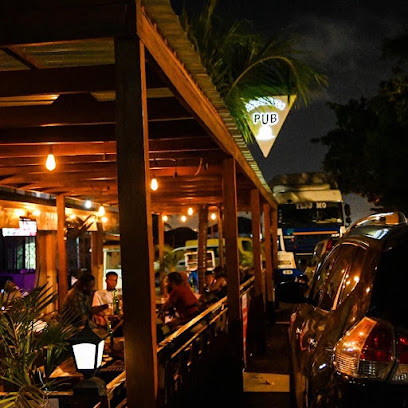
The Wells Lounge
Discover the vibrant nightlife of Accra at The Wells Lounge, your go-to destination for relaxing and socializing with friends.
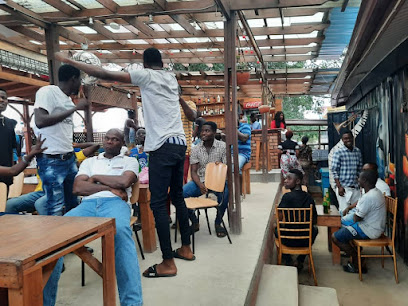
Lovers Inn Pub
Experience the vibrant nightlife of Accra at Lovers Inn Pub, a local favorite for refreshing drinks and lively entertainment.
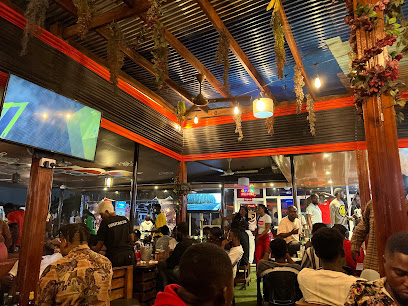
Luna Rooftop Bar
Discover the elegance and breathtaking views at Luna Rooftop Bar, Accra's premier destination for unforgettable cocktails and vibrant nightlife.
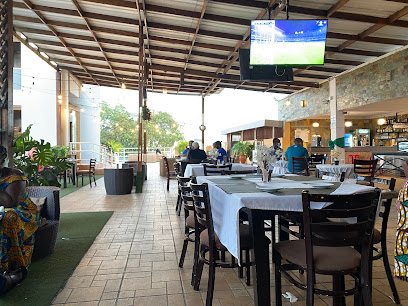
Big Bottle Pub
Experience the vibrant nightlife of Tema at Big Bottle Pub, where great drinks, local cuisine, and live entertainment await you.
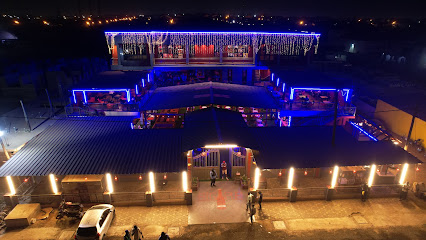
Nartflaura Ghana Limited(TWIX PUB)
Savor the essence of Ghanaian flavors at TWIX PUB, where delightful dishes meet vibrant social experiences in Pantang West.
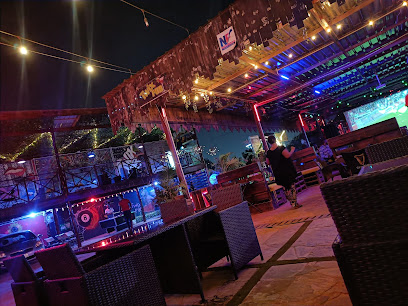
Meet Me There Pub
Experience the vibrant nightlife at Meet Me There Pub, a local favorite in Prestea- Huni Valley District, perfect for unwinding with drinks and entertainment.
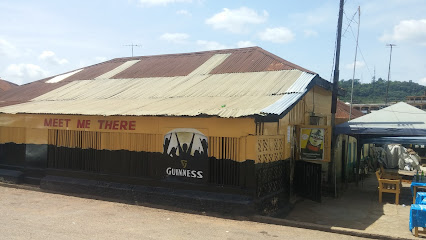
Gnik Pub and Restaurant
Experience the lively atmosphere of Gnik Pub and Restaurant in Kweiman, where delicious food and refreshing drinks await every visitor.
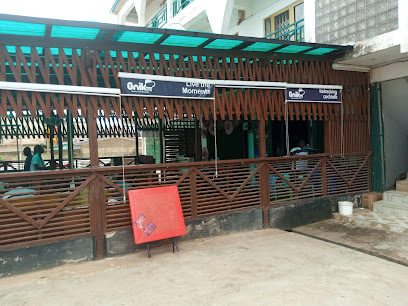
Yellow Pub Washing Bay
Discover the lively spirit of Yellow Pub Washing Bay in Ngleshi Amanfro, a perfect retreat for tourists seeking local culture and vibrant nightlife.
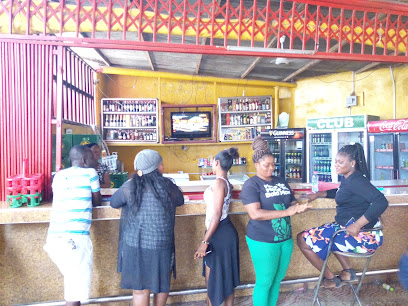
Just Chill Bar & Restaurant
Experience the essence of relaxation and local flavors at Just Chill Bar & Restaurant in Accra, where every meal becomes a delightful escape.
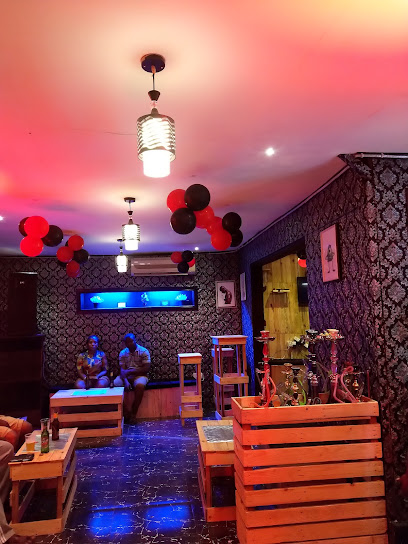
Wildfococktailbar
Experience the lively nightlife of Accra at Wildfococktailbar, where exceptional cocktails meet vibrant atmospheres and local charm.
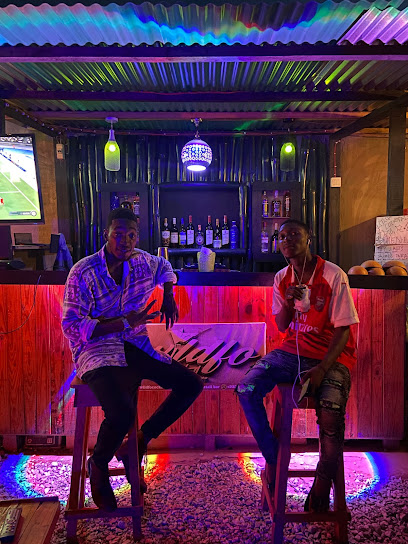
Odehei Awe Pub & kitchen
Discover the vibrant atmosphere of Odehei Awe Pub & Kitchen at Laboma Beach Resort, where local flavors meet refreshing drinks in a lively setting.
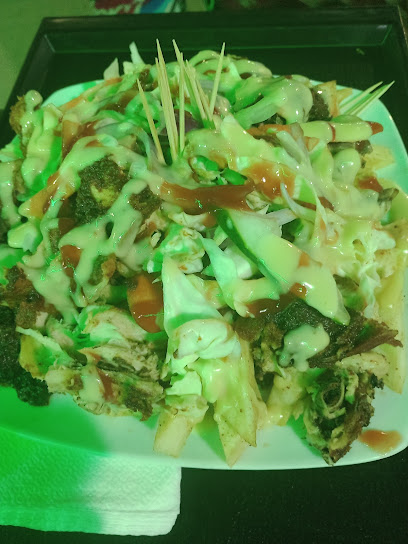
TREE BAR GHANA
Experience the vibrant nightlife and delicious grilled cuisine at Tree Bar Ghana, a local favorite for food and fun in the heart of Accra.
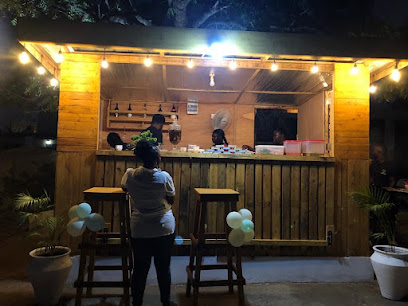
Local Phrases about Wli Nature Reserve
-
- HelloNawo
[NAH-woh] - GoodbyeAfei
[ah-FAY] - YesEe
[EE] - NoDa
[dah] - Please/You're welcomeEyi
[AY-yee] - Thank youMedaase
[meh-DAH-seh] - Excuse me/SorryAfehyia pa
[ah-fay-YEE-ah pah] - How are you?Wo ho te sen?
[woh hoh teh sen] - Fine. And you?Adzo. Na wo?
[ah-JOH. nah woh?] - Do you speak English?Wo gye di Espana kasa?
[woh jeh dee ehs-PAH-nah kah-sah?] - I don't understandMenya
[mehn-yah]
- HelloNawo
-
- I'd like to see the menu, pleaseMe hu menu no, mesr3
[meh hoo MEN-oo noh, meh-sreh] - I don't eat meatMenhu ntoro
[mehn-hoo enn-TOH-roh] - Cheers!Afei
[ah-FAY] - I would like to pay, pleaseMe hu sika, mesr3
[meh hoo see-kah, meh-sreh]
- I'd like to see the menu, pleaseMe hu menu no, mesr3
-
- Help!Mia me
[mee-ah meh] - Go away!Kai wai!
[kye why] - Call the Police!Kyer3 nipo
[kyeh-reh nee-poh] - Call a doctor!Kyer3 docta
[kyeh-reh dohk-tah] - I'm lostMeni hewo
[mehn-ee heh-woh] - I'm illMeni bi
[mehn-ee bee]
- Help!Mia me
-
- I'd like to buy...Me hu...
[meh hoo...] - I'm just lookingMenhu asaase
[mehn-hoo ah-sah-ah-seh] - How much is it?Ayi bia
[ah-YEE byah] - That's too expensiveEyi y3 too
[AY-yee yeh too] - Can you lower the price?Wonni sika y3
[wuhn-nee see-kah yeh]
- I'd like to buy...Me hu...
-
- What time is it?Eyi bia
[AY-yee byah] - It's one o'clockBia koro
[byah koh-roh] - Half past (10)Adeden
[ah-deh-dehn] - MorningAnigye
[ah-nee-jeh] - AfternoonAniw
[ah-nee-woo] - EveningAnadwo
[ah-nah-dwoh] - YesterdayNkuro
[en-koo-roh] - TodayNkuto
[en-koo-toh] - TomorrowNkuru
[en-koo-roo] - 1Koro
[koh-roh] - 2Mmienu
[mee-eh-noo] - 3Mmiɛnsa
[mee-ehn-sah] - 4Ɛnan
[eh-nahn] - 5Enum
[eh-noom] - 6Nsia
[en-syah] - 7Nson
[en-sohn] - 8Nwɔtwe
[en-woh-tweh] - 9Kronkron
[kron-kron] - 10Du
[doo]
- What time is it?Eyi bia
-
- Where's a/the...?Ɛhe nso...?
[eh-heh en-soh...?] - What's the address?Ɔhɔyɛ adiso?
[oh-hoh-yeh ah-dee-soh?] - Can you show me (on the map)?Wo bɛkyerɛ me (kɔ mapa)?
[woh beh-CHYEH-reh meh (koh mah-pah)?] - When's the next (bus)?Ɛnyɛ (trotro) reba?
[ehn-yeh (troh-troh) reh-bah?] - A ticket (to ....)Tikiti (kɔ ....)
[tee-kee-tee (koh ....)]
- Where's a/the...?Ɛhe nso...?
History of Wli Nature Reserve
-
The area around Wli Nature Reserve has been inhabited by the Ewe people for centuries. The Ewe are believed to have migrated from the region that is now Benin and Togo, bringing with them rich cultural traditions and a deep connection to the land. Evidence of ancient Ewe settlements can be found in the form of old ruins and artifacts scattered throughout the reserve.
-
During the late 19th century, the area around Wli Nature Reserve fell under German colonial rule as part of the larger Togoland territory. The Germans were interested in exploring and exploiting the natural resources of the region. They constructed roads and basic infrastructure, some remnants of which can still be seen today. The influence of German architecture and planning can be found in nearby villages and towns.
-
Following Ghana's independence from British rule in 1957, the newly formed government recognized the ecological and cultural importance of the Wli area. Efforts were made to protect the region, culminating in the establishment of Wli Nature Reserve in the 1970s. The reserve was created to conserve the unique biodiversity and provide a sanctuary for local wildlife, as well as to preserve the cultural heritage of the Ewe people.
-
In recent decades, Wli Nature Reserve has become a popular destination for eco-tourists and adventure seekers. The local communities have played a significant role in the development of sustainable tourism practices. Various community-based projects have been initiated to ensure that tourism benefits the local population, including the establishment of guided tours, craft markets, and cultural performances that showcase Ewe traditions.
-
Wli Nature Reserve is home to a diverse array of flora and fauna, including several endemic and endangered species. Conservation efforts have been ongoing to protect the unique ecosystems within the reserve. Collaborative projects between local authorities, international organizations, and conservationists have been implemented to monitor wildlife populations, restore habitats, and promote environmental education among locals and visitors alike.
Wli Nature Reserve Essentials
-
Wli Nature Reserve is located in the Volta Region of Ghana, near the town of Hohoe. The nearest major city is Accra, the capital of Ghana. From Accra, you can travel to Hohoe by bus or private vehicle, a journey that typically takes around 3 to 4 hours. There are also domestic flights from Accra to Ho, followed by a short drive to Hohoe. Once in Hohoe, local taxis or minibuses (tro-tros) can take you to the entrance of the Wli Nature Reserve.
-
Within Wli Nature Reserve, transportation options are limited due to the natural terrain. Most of the reserve is best explored on foot. Local guides are available and recommended for navigating the trails. For getting around the surrounding area, taxis and minibuses (tro-tros) are the primary modes of transport. Renting a car is also an option, though it is less common and roads can be challenging.
-
The official currency in Ghana is the Ghanaian Cedi (GHS). Credit cards are accepted in some hotels and restaurants, but it is advisable to carry cash, especially in smaller establishments and rural areas. ATMs are available in Hohoe, but it is wise to withdraw sufficient cash before heading into the reserve. Be prepared to pay for local services, such as guides and entrance fees, in cash.
-
Wli Nature Reserve is generally a safe destination for tourists. However, it is advisable to take standard precautions. Avoid walking alone at night in unfamiliar areas and keep an eye on your belongings in crowded places. While the reserve itself is safe, be cautious in the surrounding areas, especially in Hohoe, where petty theft can occur. Always stay vigilant and aware of your surroundings.
-
In case of emergency, dial 191 for police assistance or 193 for medical emergencies. The nearest medical facilities are in Hohoe, where there is a hospital and several clinics. It is recommended to have travel insurance that covers medical emergencies. For minor health issues, there are pharmacies in Hohoe where you can purchase over-the-counter medications.
-
Fashion: Do dress modestly, especially when visiting local villages. Lightweight, breathable clothing is best for the tropical climate. Religion: Do respect local customs and traditions. If visiting a religious site, dress conservatively and remove your shoes when required. Public Transport: Do be respectful and give up your seat to elderly passengers. Don't eat or drink on public transport. Greetings: Do greet people with a friendly 'Hello' or 'Akwaaba' (Welcome). A handshake is also common. Eating & Drinking: Do try local delicacies and accept food offerings graciously. Don't refuse hospitality, as it is considered impolite.
-
To experience Wli Nature Reserve like a local, consider hiring a local guide who can share insights about the flora and fauna, as well as cultural stories. Visit the nearby Wli Waterfalls, one of the highest waterfalls in West Africa, and take a dip in the natural pool at its base. Engage with the local communities and partake in traditional dances or crafts. Don't miss the opportunity to try local dishes such as 'banku' and 'tilapia'.
Trending Landmarks in Wli Nature Reserve
-
Kwame Nkrumah Memorial Park & Mausoleum
-
Kakum National Park
-
Legon Botanical Gardens Ghana..
-
Mole National Park
-
Boti Waterfalls
-
Accra Zoo
-
Wli Waterfalls main office
-
Tafi Atome Monkey Sanctuary And Cultural Village
-
Fort Prinzenstein, Keta
-
Nzulezo-Stilt Village Tour
-
Boabeng Fiema Monkey Sanctuary
-
Wli Agumatsa Waterfalls
-
Umbrella Rock
-
Owabi Wildlife Sanctuary
-
Ote Falls
Nearby Cities to Wli Nature Reserve
-
Things To Do in Kpalimé
-
Things To Do in Notse
-
Things To Do in Lomé
-
Things To Do in Aneho
-
Things To Do in Lokossa
-
Things To Do in Atakpamé
-
Things To Do in Koforidua
-
Things To Do in Accra
-
Things To Do in Ouidah
-
Things To Do in Cotonou
-
Things To Do in Porto-Novo
-
Things To Do in Kumasi
-
Things To Do in Cape Coast
-
Things To Do in Lagos
-
Things To Do in Abeokuta








